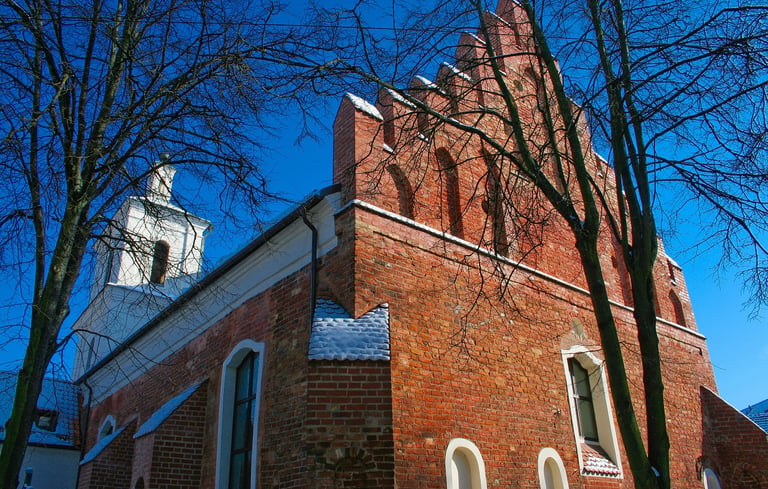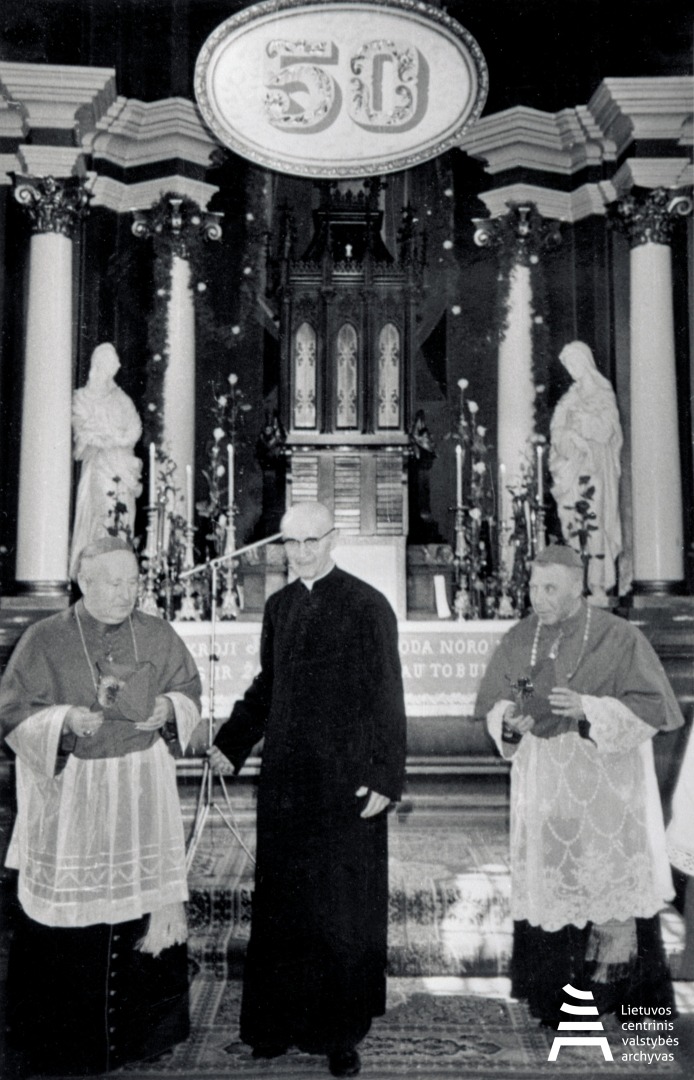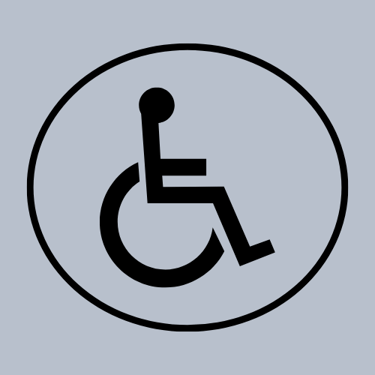Church of St. Nicholas
This church, built in the late 14th century under the rule of Duke Gediminas, was a kind of welcome sign to the foreign merchants who were just starting frequent visits to Vilnius and would often stay in this neighborhood. This church holds another distinction: ever since 1901, despite everything else, it has been the only church to always hold mass in Lithuanian.




Priest Stanislovas Valiukėnas (in the center) in Vilnius, 1982. Lietuvos centrinis valstybės archyvas, 0-108429.
Another dear friend of mine, Viktoras Petkus, also used to work at the Church of St. Nicholas. But let’s talk about him at the next stop.
Next stop: Dominikonų g. 16, Vilnius
What does a church have to do with us dissidents, you ask? Well, churches often served the function of a cultural and educational hub, and this was especially true during the Soviet occupation.
Freedom of belief was highly restricted during the occupation and atheism was forced upon the nation as a way to delete the cultural and political threat that Catholicism posed to the regime. Nevertheless, the Catholic community of Lithuania continued to protect the right to freedom of belief and churches ended up playing an important role…even to non-religious Lithuanians. And here, the Church of St. Nicholas –– the oldest church of Vilnius –– was a safe place for dissident meetings, Lithuanian classes, and plays. While the main churches were closed down by the authorities, the Church of St. Nicholas was as active as ever, even holding mass to celebrate the 600th anniversary of the Christianization of Lithuania.
Moreover, mass was held at this very church the morning of the rally at Adomas Mickevičius’ monument. Before the rally, we all talked with the priest who planned to hold the historic mass – Stanislavas Valiukėnas. We promised each other to exchange stories – he would tell us about the mass and who came, and we’d tell him about the rally. But we never did. On the morning of the mass, the priest, who was such a dear friend to the religious and dissident communities, had a heart attack and collapsed, falling right at the altar. He died right here, in the most patriotic church of Vilnius.




